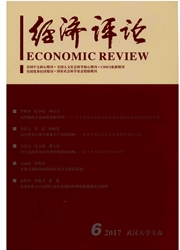

 中文摘要:
中文摘要:
媒体的治理效应一直是国内外研究的热点问题。基于经济人寻租的视角,本文以2007-2012年的A股IPO公司为样本,实证考察了媒体在我国IPO市场中监督作用的发挥。研究发现:(1)发行公司的寻租行为明显增加了正面报道量、减少了负面报道量进而增强了媒体有利报道倾向;(2)业绩不佳的公司寻租增加了正面报道量,而业绩较好的公司寻租则减少了负面报道量,媒体对国企的寻租活动存在明显的正面报道偏好;(3)媒体正面报道越多,IPO后长期回报率越低、未来财务业绩越差、公司价值越低,可见媒体对上市公司的正面报道倾向并不意味着上市公司的高质量。研究结果表明,IPO市场中,作为外部监督机制的第三方媒体并未起到甄别上市公司质量、提高IPO市场资源配置效率的积极作用,媒体在IPO市场中并没有发挥有效的监督作用。
 英文摘要:
英文摘要:
From the perspective of economic rent-seeking, based on the 2007-2012 A-share IPO firms, this paper empirically examines the media' s role as a "watchdog" in the IPO market of China. We find that firstly, the rent-seeking behavior of IPO firms will enhance the favorable tendency of media coverage, especially for state-owned firms. Secondly, rent-seeking will mainly reduce negative news for firms with good performance, and for underperforming firms, the rent-seeking behavior will mainly add positive news. Thirdly, the more positive news the media release, the lower of long-term returns, ROE and Tobin Q after IPO will be. Therefore, media' s positive coverage of IPO firms doesn' t mean high quality of listed firms. The results indicate that, as an external supervision mechanism, the third-party media doesn' t play the positive role of identifying the quality of listed companies and improving the IPO market' s resource allocation efficiency. The media's watchdog role has encountered difficulties in the IPO market.
 同期刊论文项目
同期刊论文项目
 同项目期刊论文
同项目期刊论文
 期刊信息
期刊信息
